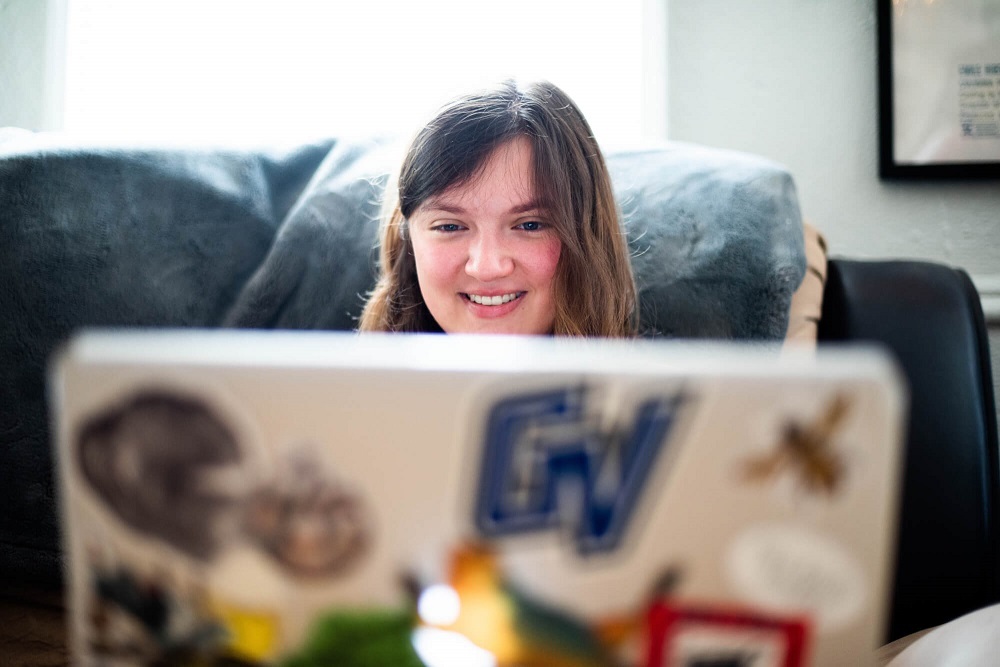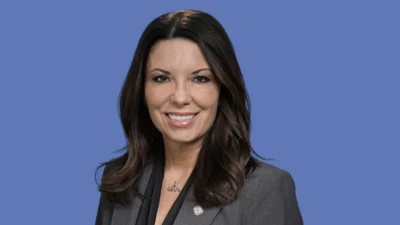Grand Valley State University issued the following announcement.
"You're all like renewable energy super heroes!" Samantha Green said to her campers as they were showing off the prototypes of their renewable energy project. Green was facilitating the "Energizing Our World" camp from her Grand Rapids apartment.
Photo Credit: Kendra Stanley-Mills
Summer at Grand Valley is usually brimming with K-12 students attending camps to enrich them in STEM disciplines, performing arts, athletics and more.
The restrictions brought on by the COVID-19 pandemic largely thwarted those plans this year -- though Athletics, for instance, is planning for in-person camps -- but several organizers have developed innovative ways to bring the camps to students virtually.
While organizers needed to manage concerns about connectivity and content translating virtually, some are also seeing benefits, such as engaging a broader swath of students geographically.
Here is a sampling of how some camps adjusted.
Energizing Our World
The Regional Math and Science Center recently held its camp, "Energizing Our World," virtually. The camp was designed to spark interest in renewable energy. Students were divided into two teams, blue and green, and the days included a full slate of activities which included building and presenting prototypes. One student even made a video to share an idea.
Students also participated in a career fair, where Grand Valley representatives and community members discussed their careers related to energy and sustainability and their sometimes roundabout paths to reach their professions. Students were encouraged to keep an open mind. “You don’t always have to have a clear plan,” said Tara Kneeshaw, assistant professor of geology -- and to find ways to be involved with the fields that interest them.
Chelsea Ridge, mathematics program coordinator for the center, said organizers still kept safety at the forefront of planning, but in this case it was about ensuring portals were secure and those logging in for live sessions were part of the camp. They also ensured the content was applicable for students working at home and to allow them to work as a team.
"The camp was a success. The camper feedback has been positive and project presentations at the end of camp were innovative," Ridge said. "It was evident that students were digging into renewable energy and thinking about how they could use what they learned in camp to impact their lives and their community."
sHaPe Camp
The 11th annual Summer Health Activities and Professions Exploration, or sHaPe Camp, will still be held as planned, only virtually. The camp, designed to introduce area eighth- and ninth-grade students to careers in health professions, is a collaboration between Grand Valley's Regional Math and Science Center and the College of Health Professions and will be held July 13-16.
Ranelle Brew, chair and associate professor of public health, said students will each receive technology resources (Chromebook and WiFi hotspot) paired with a hands-on, interactive toolkit of activities to complete camp in a virtual format. She said online learning will be conducted using a Google Classroom platform with workbooks of information and reflection activities.
Kathy Agee, science program coordinator for the Regional Math and Science Center, said students will be paired with a mentor, and counselors and planning committee members will be available each day for real-time guidance. Campers will also be a part of daily chats with GVSU student counselors and other campers.
Students enrolled from Grand Rapids Public Schools are sponsored by Meijer and Mercy Health Saint Mary’s, and students from Battle Creek Public Schools are sponsored by the W.K. Kellogg Foundation.
STEPS camp
The long-running Science Technology & Engineering Preview Summer (STEPS) camp for rising seventh-graders will feature content from a software package about gliders that allows campers to build a model and even lets them test their gliders in a simulated environment, said Sara Maas, outreach coordinator for the Padnos College of Engineering and Computing. The camp covers the science of aviation.
The virtual camp will still include presentations from experts, and organizers are striving to stay true to the atmosphere they create with in-person camps, Maas said. "We knew we wanted it to be hands-on and still have the opportunity to do something creative. We want students to try things and make mistakes and learn lessons," she said.
The first week, starting July 6, is dedicated to students from Battle Creek as part of a grant from the W.K. Kellogg Foundation. Continuing the opportunity for students through that grant was a key consideration for pivoting the camp to a virtual experience, Maas said.
Organizers purchased model airplane kits for each camper, who received a hand-delivered plastic container with the kit and other materials needed for the camp.
Piano training
Sookkyung Cho, assistant professor of piano, is offering a virtual experience for high school students who have already had significant piano training. Cho wants to broaden the students' knowledge by exposing them to different kinds of music and instruments.
And while, like others, she is disappointed they won't meet in person, this virtual camp is allowing her to bring in experts from around the world to work with students. For instance, they will hear from a pianist in Germany who will teach them about the fortepiano, a forerunner of the modern piano and an instrument used by Beethoven, said Cho, adding that understanding that instrument will help students understand Beethoven's work better.
Cho said the virtual experience allows for wider geographical participation; students from throughout Michigan and even other states have signed up. She noted that this opportunity is helping to fill a void left by the cancellation this year of popular summer music camps.
Besides presentations, the camp includes virtual recitals, including for participants. "I'm hoping maybe in the future if this goes well, we could do a week of virtual camp and the last day we get together on campus, so culmination is a live concert," Cho said. "I don't think there’s anything that can replace that live experience, but I find human beings are so creative and so resilient we keep finding silver linings."
For More Information Contact: Peg West in University Communications - 616-331-2222
Original source can be found here.


 Alerts Sign-up
Alerts Sign-up